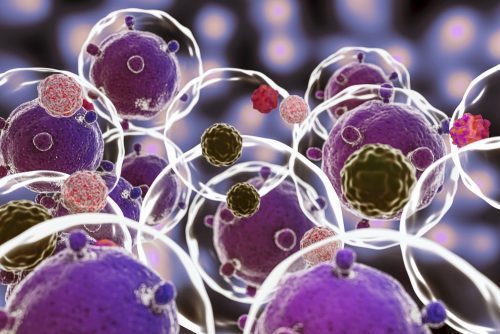
Viral Oncology: Understanding Cancer Viruses
Unmasking the viral culprits: Unveiling the link between viruses and cancer.
Skills you will gain:
This program delves into the fascinating and evolving field of viral oncology. Through a combination of lectures, discussions, and case studies, participants will gain a deeper understanding of how viruses can hijack cellular processes and contribute to cancer initiation and progression.
Aim: To empower participants with a comprehensive understanding of cancer viruses, their role in tumorigenesis, and the emerging strategies for therapeutic intervention.
Program Objectives:
- Explore the diverse range of viruses implicated in human cancers.
- Analyze the mechanisms by which viruses contribute to cancer development.
- Discuss the current methods for diagnosing and monitoring viral-associated cancers.
- Evaluate the potential of antiviral therapies and vaccines in cancer prevention and treatment.
- Explore the burgeoning field of oncolytic virotherapy and its applications.
- Identify the ethical considerations surrounding the use of viruses in cancer therapy.
What you will learn?
Week 1: Introduction to Viral Oncology
-
Overview of oncogenic viruses and mechanisms of transformation
-
Key cancer-associated viruses: HPV, EBV, HBV, HCV, HTLV, KSHV
-
Molecular basis of viral integration and genome instability
-
Epidemiology and burden of virus-induced cancers
Week 2: Host–Virus Interactions and Oncogenesis
-
Immune evasion, chronic inflammation, and tumor promotion
-
Viral oncoproteins and disruption of tumor suppressors
-
Cell signaling pathways hijacked by viruses
-
Co-factors influencing viral carcinogenesis (co-infection, lifestyle, genetics)
Week 3: Diagnostics and Molecular Detection Technologies
-
PCR, RT-PCR, ELISA, and in situ hybridization in viral cancer diagnostics
-
Next-gen sequencing (NGS) and viral genome analysis
-
Biomarker discovery and validation in virally driven cancers
-
AI-powered image analysis and digital pathology in viral oncology
Week 4: Therapeutic and Preventive Strategies
-
Antiviral therapies and targeted cancer treatments
-
Vaccination and prophylaxis (e.g., HPV, HBV vaccines)
-
Immunotherapy and virus-specific T-cell responses
-
Future frontiers: CRISPR, oncolytic virotherapy, and precision oncology
Intended For :
- Biotech, Pharma, and Life Sciences graduates
- Post-graduates specializing in virology, oncology, or immunology
- Academicians researching cancer viruses
- Industry professionals seeking to advance their knowledge in viral oncology
- Anyone interested in the role of viruses in cancer development
Career Supporting Skills
